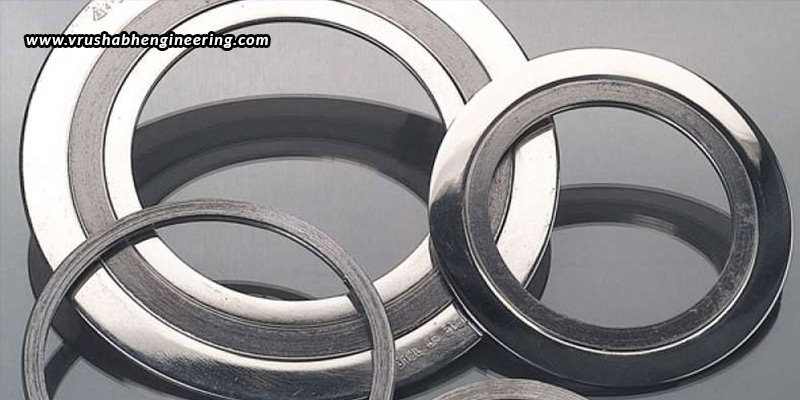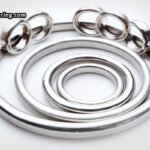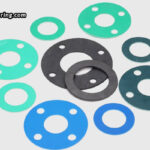Industrial environments demand components to withstand extreme conditions of temperature, pressure, and chemical exposure, while performing flawlessly to ensure safety and efficiency. To help components work so flawlessly without being interrupted by leaks and failures that are common in industrial applications, gaskets play a very vital role as a strong barrier. While non-metallic gaskets can work well in basic conditions, for demanding applications like oil & gas, petrochemicals, power generation, and marine systems, spiral wound gaskets are a better choice for superior sealing reliability. This is because these gaskets come with the perfect combination of metallic and non-metallic materials, balancing strength and flexibility, which makes them ideal for such high-stress applications. Let’s explore in detail how spiral wound gaskets can outperform non-metallic gaskets in such applications, delivering greater durability, safety, and long-term performance.
Why spiral wound gaskets excel in high-stress applications
Spiral wound gaskets are engineered to perform where traditional gaskets fail, combining strength, flexibility, and reliability, to withstand the toughest operating conditions.
- Optimized design for uniform load distribution
The design of spiral wound gaskets is engineered to distribute pressure evenly across the flange surface, minimizing local stress points. The strong metal design also prevents deformation and enhances long-term sealing performance even under repeated pressure cycles.
- Exceptional mechanical strength
The metallic component of a spiral wound gasket provides the mechanical strength required to handle high-pressure environments. They can resist extrusion and blowout even under severe pressure fluctuations, ensuring reliable sealing in demanding industrial operations.
- Thermal resilience
Spiral wound gaskets can endure extreme temperature ranges, from cryogenic lows to temperatures exceeding 1000°C, depending on the materials used. Moreover, the amazing combination of metallic and non-metallic layers allows them to expand and contract with the flange, maintaining a perfect seal during thermal cycling, which is one of the most common challenges in steam systems and refineries.
- Chemical resistance
The most common materials used to build spiral wound gaskets include Inconel, Monel, Hastelloy, PTFE, and graphite, all of which are resistant to a broad range of acids, alkalis, and solvents. This ensures superior chemical compatibility compared to non-metallic gaskets.
- Leak-proof performance under variable loads
Industrial environments generally have fluctuating loads, which can make non-metallic gaskets lose sealing contact. Spiral wound gaskets, on the other hand, are engineered to recover from compression and handle temperatures and pressures, maintaining consistent contact with the flange, and minimizing the chances of leaks.
- Reusability
One common issue with non-metallic gaskets is that they cannot be reused once compressed as they lose their elasticity and sealing compatibility. But, spiral wound gaskets, owing to their flexibility and thermal resilience, can be reused in some applications, making them a cost-effective option.
Overcoming non-metallic gasket limitations with spiral wound solutions
Understanding the inherent weaknesses of non-metallic gaskets is essential, as they often lose sealing integrity when exposed to thermal, pressure, or chemically aggressive operating conditions.
- Low structural strength
Non-metallic gaskets lack mechanical strength, and can fail under high temperatures, pressures, and loads. But, spiral wound gaskets, with the perfect balance of metal and non-metal are equally robust and flexible, meaning a high mechanical strength that can enable reliable performance even in high-pressure, high-stress industrial environments.
- Limited temperature resistance
Non-metallic gaskets can degrade, harden, or lose elasticity when exposed to high or fluctuating temperatures. But, spiral wound gaskets, with their metallic windings and filler layers, maintain integrity across a wide temperature range, expanding and contracting with the flange, thus ensuring consistent sealing even in cryogenic or high-heat systems.
- Chemical incompatibility
Non-metallic gaskets can swell, soften, or disintegrate when coming in contact with certain process fluids and gases. But, the materials used to construct spiral wound gaskets can overcome this issue by providing superior resistance to acids, alkalis, and solvents, to ensure safe, long-lasting operation in chemically aggressive environments.
- Compression set
Non-metallic gaskets, when compressed, can deform, not being able to recover. Spiral wound gaskets, on the other hand, are designed to recover from compression, providing reliable sealing performance in applications with variable loads or repeated thermal and mechanical cycling. They can also be reused in certain applications.
- Shorter service life
Non-metallic gaskets wear down frequently or deform due to compression, which means increased maintenance costs and downtime to replace them. Spiral wound gaskets, on the other hand, are able to withstand the compression, heat, and pressure, without deforming. This means there is no maintenance or replacement required, meaning operations can be carried out without interruptions.
Applications where spiral wound gaskets outperform non-metallic gaskets
Spiral wound gaskets are trusted across industries for their superior sealing performance, durability, and adaptability, making them ideal for demanding industrial environments.
- Oil & gas refineries
Spiral wound gaskets ensure can endure vibration and temperature variations, ensuring leak-free performance and maintaining reliable sealing integrity across pipelines, valves, and pressure vessels in oil and gas refineries under fluctuating operating conditions.
- Petrochemical plants
Spiral wound gaskets, with superior chemical resistance and effective sealing, can handle corrosive chemicals and extreme heat in petrochemical plants during startups, shutdowns, and high-temperature processing operations.
- Power generation
The robust construction of spiral wound gaskets helps withstand high temperature and pressure, ensuring operational efficiency in power plants, when used in boilers, turbines, and heat exchangers to prevent steam leaks, and guarantee system safety.
- Marine and offshore systems
Spiral wound gaskets can resist corrosion and pressure fluctuations, which are common and challenging conditions in marine and offshore environments. They provide durable sealing for ship engines, pumps, and platforms, ensuring safety, reliability, and long-term performance in harsh, saltwater-exposed conditions.
The role of reliable manufacturing
The performance and safety of spiral wound gaskets depend heavily on the precision of their manufacturing process. Every detail, from layer winding and filler density to ring alignment, determines the gasket’s sealing integrity, strength, and resistance to leaks. High-quality manufacturing eliminates imperfections that could lead to premature failure under extreme conditions. Vrushabh Engineering, the best spiral wound gasket manufacturer in India, ensures exceptional craftsmanship and strict quality control at every stage of production. Their gaskets are designed to perform reliably in high-pressure, high-temperature, and corrosive environments, meeting the rigorous demands of industries like oil & gas, petrochemicals, and power generation. With Vrushabh Engineering, clients gain durable, high-performance sealing solutions that ensure long-term reliability and operational safety.
Reliability, safety, and performance are crucial, and cannot be compromised in high-stress industrial applications. While non-metallic gaskets have their place in basic applications, spiral wound metallic gaskets offer unmatched durability, resilience, and adaptability where reliability is critical and failure is not an option. Their multi-layer design, ability to recover under variable loads, and resistance to extreme temperature and pressure make them the go-to choice across critical industries. All in all, spiral wound gaskets can ensure leak-proof operations, safer environments, and reduced operational downtime in industrial applications – hallmarks of sustainable and efficient plant performance.





